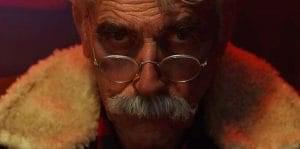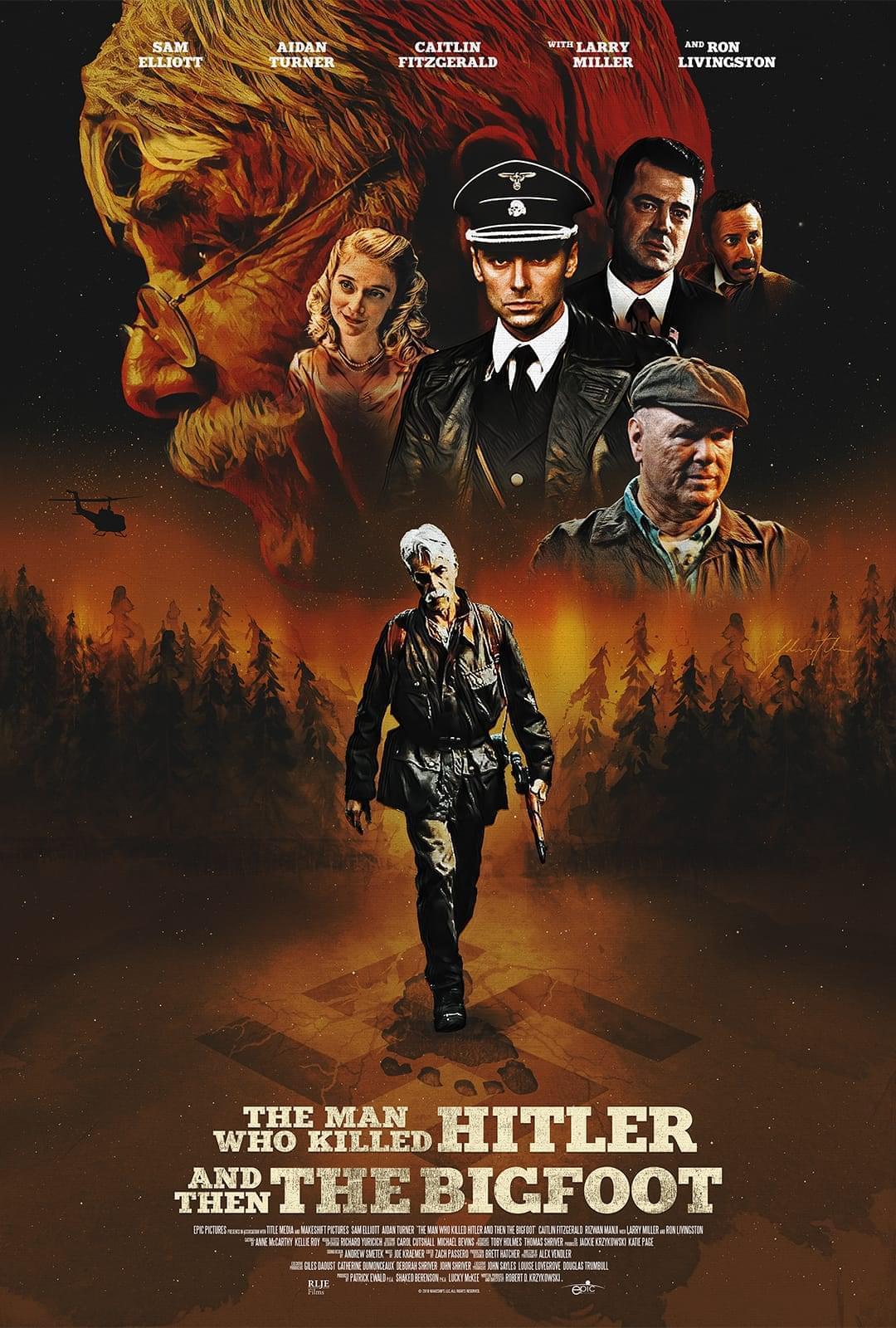
It should go without saying, The Man Who Killed Hitler and then the Bigfoot, written and directed by Robert D. Krzykowski, is an unusual movie and only for the most obvious reason. Aside from a little rock ‘n’ roll, an early a*s-whoopin,’ and the time Bigfoot projectile vomits pumpkin soup, you couldn’t classify this as a midnight movie. True, the writing is consistently elbowing you with blatant metaphors, but there’s a surprising dedication to the first of the proper nouns in its title, especially given the presence of the other two.
Dedication is one thing, but does Krzykowski’s script pull off its attempt to nestle a character piece into an overarching plot filled with shenanigans? The answer is an assured “no.” As already mentioned, the dialogue holds your hand so much that it becomes uncomfortable and quick. Flashbacks are liberally employed, yet serve no worthwhile purpose, other than to spell out events that are better left to suggestion. Additionally, the flashbacks take us away from the movie’s primary selling point and not-so-secret weapon: Sam Elliott.

“You believe that he secretly killed Hitler and you believe that he will—after some nudging—kill the Bigfoot.”
His performance here might go down as one of his best, if only because he’s able to make the events around him and the absurdities coming out of his mouth seem not only reasonable but dire and naturally true. To find an equal in Elliott’s ability to exhibit conviction and quiet authority, you’d have to dig into the archives and pull out a Bogart or a Ben Johnson.

"…isn’t the loony chuckle-fest that many might want..."


movie suks!!
Remnants of his past love seems an obvious as to what would be in the box, maybe the ring & ????. The far flung events Calvin supposedly accomplished almost had me to believe he was just a ghost who didn’t return from the war and his brother just concocted.
What is in the box his brother buried and he dug up?